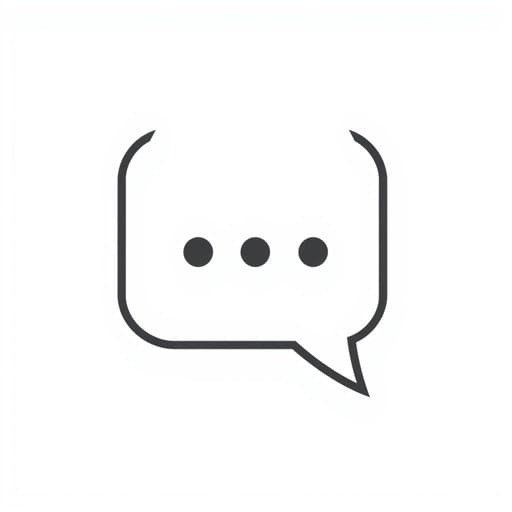In online chats and casual digital conversations, certain phrases carry more weight than their simple words suggest. Well, duh is one such expression that has become widely recognized in texting culture, particularly among English speakers. While it might seem informal or even dismissive, its meaning and usage are rooted in tone, context, and familiarity between speakers. Understanding what ‘well duh’ means in chat can offer insight into casual communication styles and the subtle nuances of online language.
Understanding the Phrase Well Duh
Basic Definition
At its core, well duh is an informal response used to indicate that something is very obvious or self-explanatory. It often carries a tone of sarcasm or slight condescension, depending on how it’s used. In text-based chats, it typically implies that the speaker believes the previous statement was so evident that it didn’t need to be said aloud.
Synonyms and Comparable Phrases
Several phrases convey a similar meaning to well duh in casual conversations:
- Obviously
- No kidding
- Of course
- Isn’t it obvious?
- Yeah, no doubt
Each of these can reflect different levels of politeness or sarcasm, depending on the situation. However, well duh is particularly common in digital chats due to its brevity and punchy tone.
How Well Duh Is Used in Chat Conversations
Typical Scenarios
Here are a few situations where someone might respond with well duh in a text or chat:
- When a friend points out something that’s already very clear.
- In reaction to an obvious question or remark.
- When playfully teasing someone for stating the obvious.
Example:
Person A: You really like chocolate, don’t you?
Person B: Well duh! I eat it every day!
Non-verbal Cues in Text Form
Because chat doesn’t allow for vocal tone or facial expressions, phrases like well duh often stand in for eye rolls, laughter, or playful sarcasm. Sometimes users will add emojis like ð or ð to clarify the tone further and prevent misunderstandings.
Interpreting Tone and Intent
Friendly vs. Rude Usage
Although well duh can come across as rude, it’s often not meant to insult. In friendly conversations, it’s usually meant to be humorous or teasing. However, when used with strangers or in formal settings, it may seem dismissive or condescending. Understanding the relationship between the people chatting is key to interpreting the intent behind the phrase.
For example, if two close friends are joking around, well duh can be a sign of playful banter. On the other hand, if used in a professional group chat or with someone unfamiliar, it might be interpreted as disrespectful or passive-aggressive.
Variations and Trends in Online Use
Modern Modifications
As language evolves, so do the ways people express themselves online. ‘Well duh’ has seen variations such as:
- ‘Duh’ on its own even more casual and quick.
- ‘Well, duh’ with added emphasis using asterisks.
- ‘Well duh ð’ with an emoji to reinforce the tone.
These changes often depend on the platform. For example, on platforms like Twitter or TikTok, users might stylize the phrase for added humor or sarcasm.
Generational Differences
Younger generations, especially Gen Z, may use well duh more frequently in a humorous or ironic way, while older users might use it less or in a more literal tone. Despite the differences, it remains a recognizable and useful phrase in informal online communication.
Cross-Cultural and Translation Considerations
Challenges in Translating Well Duh
Translating well duh into another language can be tricky, as its meaning is heavily tied to cultural context and tone. It doesn’t have a direct equivalent in many languages, and the sarcastic flavor can be easily lost. A literal translation might not make sense or could come across as insulting if the tone isn’t adjusted properly.
Alternative Expressions in Other Languages
In some languages, similar expressions exist that capture the idea of pointing out the obvious, but they may not carry the same casual tone. In Nepali, for instance, a rough equivalent might be ‘त तà¥à¤ सॠत हॠनि!’ (ta tyasai ta ho ni!), meaning Well, of course it is! But even this may lack the sarcastic bite or friendly teasing tone of well duh.
Why Understanding Casual Phrases Matters
Improving Communication in Digital Spaces
With much of our communication happening online, understanding phrases like well duh helps us connect more effectively. These informal expressions are part of digital fluency the ability to interpret tone, context, and meaning even in text-based messages.
Avoiding Miscommunication
Knowing what someone means when they say well duh can prevent misunderstandings. It’s important to read not just the words, but the relationship, the context, and the style of the conversation. In some cases, it might be better to avoid such phrases in professional or unfamiliar settings to maintain a respectful tone.
In summary, well duh is a widely used slang expression that highlights the obvious, often with a touch of sarcasm or humor. In chat and text, it’s a quick way to respond to statements that seem unnecessary or redundant. While it can be friendly and playful among peers, its tone must be considered carefully to avoid sounding rude. Like many informal phrases in English, well duh reflects the evolving nature of communication, especially in the digital world. Understanding its usage not only improves everyday chat conversations but also enhances your overall fluency in casual English.
